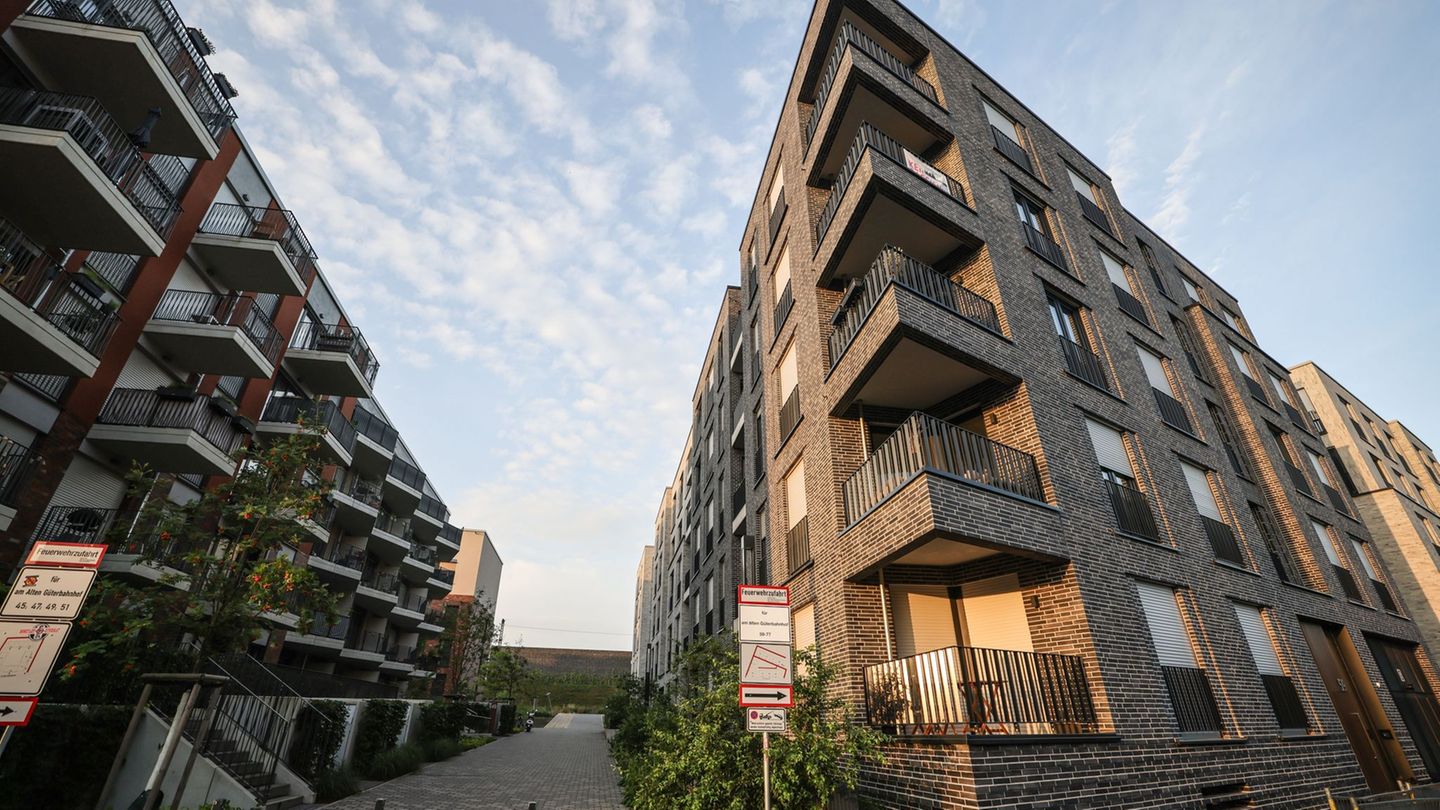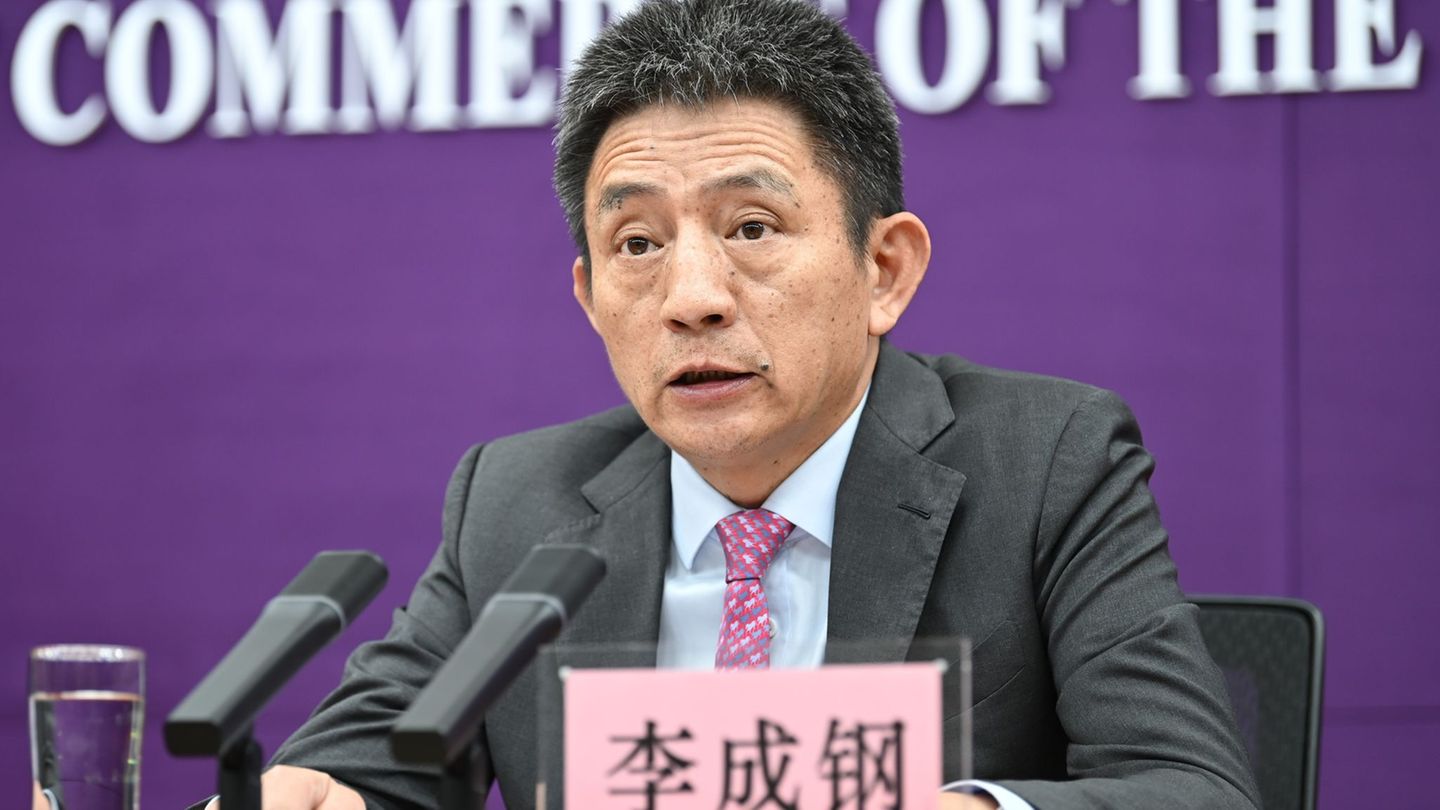Upheaval in Syria
Syria is to be led by a transitional government
Copy the current link
After the fall of President Assad, Syria is in upheaval. A transitional government should lead the country through the next phase. Syria is still not united.
Syria is preparing for a change of power after the fall of long-time ruler Bashar al-Assad. The country is to be led by a transitional government until March 2025. The previous head of government in the rebel stronghold of Idlib, Mohammed al-Bashir, says he is leading this. Al-Bashir reportedly studied electronics engineering and Islamic law. He is in his early 40s.
The Islamist group HTS launched its offensive from the northwestern province of Idlib. Rebels took the capital Damascus on Sunday after more than 13 years of civil war. President Assad, in office since July 2000, fled to Russia.
While the first people in Damascus are going about their everyday business again, aid organizations are warning that the violence in the country is not yet over.
Smooth transfer of government operations planned
At a meeting in Damascus, the leader of the Islamist group Haiat Tahrir al-Sham (HTS), Ahmed al-Sharaa, who previously went by his nom de guerre Abu Mohammed al-Julani, and ministers from the current government discussed the transition. Both sides are reportedly seeking a smooth transfer of management operations.
Central Bank employees return to work
In a first step towards normality, employees of the Syrian central bank have returned to their jobs, according to eyewitnesses. Residents watched as the employees entered the building in the capital Damascus.
The central bank employees initially stayed away from work due to the uncertain situation. According to eyewitnesses, some people looted the central bank’s headquarters in Damascus on Sunday. Aid organizations then warned that this would make aid to the country more difficult as reliable money transfers would not be possible.
Ministries asked their employees to return to work.
Israel: Sunk Syrian Navy
According to Defense Minister Israel Katz, Israel’s navy has destroyed the Syrian navy. “The Navy worked tonight to destroy the Syrian Navy and did so with great success,” Katz said during a visit to troops in Haifa. Pictures of destroyed and sunken warships in the Syrian naval base of Latakia could be seen on social networks.
The attack on the Syrian navy was part of Israel’s efforts to destroy any military capabilities that could threaten Israel, Katz added. At the same time, he warned the rebels in Syria who had overthrown ruler Bashar al-Assad. “Whoever continues Assad’s path will end up like Assad,” Katz said.
Israel’s air force has already destroyed most of the Syrian army’s land forces in hundreds of attacks since the fall of Assad. Suspected chemical weapons as well as research and production sites for such weapons are also said to have been the target of Israeli attacks. When asked, the Israeli army did not comment on the attacks in the neighboring country.
Israel: Forces do not approach Damascus
Israel denied reports that Israeli tanks were also stationed near the Syrian capital Damascus. An Israeli military spokesman wrote on Platform X that reports of Israeli forces approaching Damascus were “completely false.”
Israeli troops are in the buffer zone between the Israeli-occupied Golan Heights and Syria and at “defense points near the border,” wrote spokesman Avichai Adraee. The aim is to protect the border with Israel. Extensions of the buffer zone are around 50 kilometers from Damascus.
UN mediator: Israel must stop attacks in Syria
UN special envoy Geir Pedersen calls on Israel to end its ground operations and bombings in Syria. These latest military operations are “very worrying,” said the Syria mediator in Geneva. “This has to stop. This is extremely important,” he said.
Pedersen pointed out that the various armed groups in Syria are currently well coordinated after Assad’s escape, but are still not united. “It is important that conflicts do not arise between these groups,” said the Norwegian UN diplomat.
Fighting between pro-Turkish rebels and Kurds
Pro-Turkish rebels continue to take action against Kurdish militias. After heavy fighting, they captured the northern Syrian city of Manbij from Kurdish militias, as the Syrian Observatory for Human Rights based in Great Britain and dpa activists confirmed. The takeover was preceded by two weeks of fighting, parallel to the advance of the Islamist-led rebel alliance towards Damascus.
Turkey occupies border areas in northern Syria with the support of the SNA, which consists of several rebel groups. Turkey considers the Kurdish militias active there to be an offshoot of the banned Kurdish Workers’ Party (PKK) and therefore a terrorist organization. On Monday evening, Turkish President Recep Tayyip Erdogan emphasized that he would not tolerate their presence on the border with Türkiye.
dpa
Source: Stern
I have been working in the news industry for over 6 years, first as a reporter and now as an editor. I have covered politics extensively, and my work has appeared in major newspapers and online news outlets around the world. In addition to my writing, I also contribute regularly to 24 Hours World.




